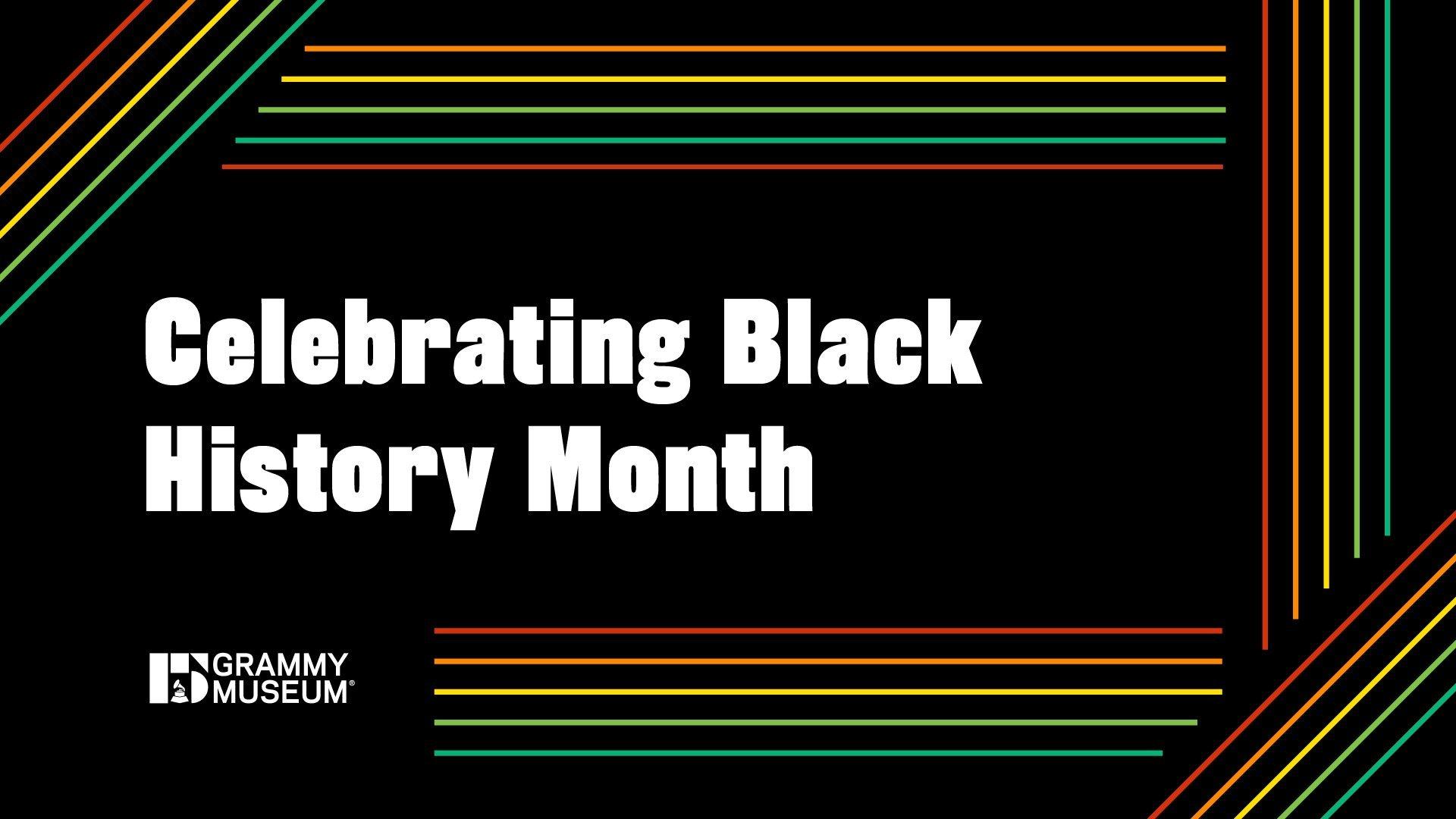June is an important moment in the year, as it brings us Pride Month, Black Music Month and Juneteenth. It also marks the official start of summer, where rising temperatures invite late afternoons enjoying good music — whether it’s outdoors at one of the season’s many festivals or in the comfort of your own home.
As for the good music, this month brings us plenty of new releases by queer artists, like Kim Petras' long-awaited debut, Feed The Beast, and the Aces’ I’ve Loved You For So Long. Black musicians have much on offer in June as well, including Janelle Monáe (who is also queer) The Age of Pleasure, house music DJ and producer Jayda G’s Guy, and Ghana-born singer Amaarae’s Fountain Baby. Last but not least, June also marks the return of both Foo Fighters and Lucinda Williams after life-altering events, and the ultimate release of Bob Dylan’s 2021 concert film soundtrack, Shadow Kingdom.
To inspire you further with their bold artistry and moving stories, GRAMMY.com compiled a guide to the 15 must-hear albums dropping June 2023.
Foo Fighters - But Here We Are
Release date: June 2
In dark times, humans often turn to art. Even if they have no answers for what the future holds, the transmuting power of expression reminds us that, sometimes, existing is enough. But Here We Are, Foo Fighters’ 11th studio album, does just that.
After "a year of staggering losses, personal introspection and bittersweet remembrances," as they state in their website — referring to the sudden loss of longtime drummer, Taylor Hawkins, and of frontman Dave Grohl’s mother, Virginia — they find both grievance and strength in what has been called "the first chapter of the band’s new life."
In support of this change, Foo Fighters have announced over 25 performances across the U.S. and Europe in the upcoming months. But Here We Are drops on June 2, and features ten new tracks, including promotional singles "Rescued," "Under You," "Show Me How," and "The Teacher."
Juan Wauters - Wandering Rebel
Release date: June 2
For most of his life, the Uruguay-born, New York-raised singer Juan Wauters was a rover — never for too long in one place. But as he sings on the upcoming titular track of his new album, Wandering Rebel, "During COVID I discovered/ that I like stability."
In a statement, Wauters reflected about moving back to his home country because of the pandemic, and the personal changes that came with it: "New York was the place I always came back to, but I never really had a 'home.' My parents left Uruguay, their home, when I was young. Now, [in Montevideo], I have a place to come home to, and people that are waiting for me."
The 12 songs on Wandering Rebel are defined as "candid reflections on subjects like career, romantic commitment, mental health, and the personal toll of touring," some of which can be seen through singles "Milanesa al Pan (ft. Zoe Gotusso)" and "Modus Operandi (ft. Frankie Cosmos)." As to not lose sight of his itinerant roots, Wauters will embark on a lengthy U.S. tour starting this month.
Bob Dylan - Shadow Kingdom
Release date: June 2
When the COVID-19 pandemic stalled Bob Dylan’s illustrious Never Ending Tour, he decided to baffle the world with something entirely different.
First released in 2021 as a concert film directed by Alma Har'el, Shadow Kingdom sees Dylan perform 14 tracks from the first half of his career in an acoustic, intimate atmosphere. In the setlist, "It's All Over Now, Baby Blue" from 1965’s Bringing It All Back Home marks the earliest composition to be featured, while "What Was It You Wanted" from 1989's Oh Mercy is the latest.
With little-to-no prior information, the film originally premiered on livestream platform Veeps, and swiftly disappeared 48 hours after. On June 2, an official soundtrack release will revive the experience for all those who missed it.
Rancid - Tomorrow Never Comes
Release date: June 2
Breaking a six-year absence of new music, California’s boisterous Rancid are back. Tomorrow Never Comes, the band’s tenth album, proves that the verve from one of punk rock’s biggest acts in the mid-1990s is still alive.
Produced by longtime collaborator and Bad Religion guitarist Brett Gurewitz, the record holds 15 tracks, but runs just short of 29 minutes — Rancid’s briefest album yet. But judging by singles "Tomorrow Never Comes," "Don't Make Me Do It," and "Devil in Disguise," quick-paced or not, the quality remains the same.
Right after the release, Rancid will kick off an European tour for the rest of the month, before hitting Canada and a few cities in the U.S. starting September.
The Aces - I’ve Loved You For So Long
Release date: June 2
Pride month celebrations have just gotten the perfect soundtrack: I’ve Loved You For So Long, the Aces’ third studio album, comes out on June 2.
Preceded by the title track and singles "Girls Make Me Wanna Die," "Always Get This Way," and "Solo," the album marks the Utah quartet’s first release since 2020’s LP Under My Influence. According to a press release, I’ve Loved You For So Long is "rife with songs that celebrate their queer identities, juxtaposed by tracks that reflect on their early relationships with Mormonism."
The 11-track collection is also described as "a nostalgic look back at the formative experiences that shaped who they are as a band today, like pages straight from their diaries that will leave their listeners feeling seen and critics wanting more."
Janelle Monáe - The Age of Pleasure
Release date: June 9
Marking her return to music five years after 2018’s Dirty Computer, the chameleonic singer and actor Janelle Monáe ushers in The Age of Pleasure. Her fourth studio album features 14 tracks, including collaborations from Grace Jones, Amaarae, Seun Kuti, and others.
During an interview with Zane Lowe on Apple Music 1, Monáe said all the songs "were written from such an honest space," with the goal of being "so specific to this Pan-African crowd who are my friends. I want it to be a love letter to the diaspora."
If its two delightful singles "Float" and "Lipstick Lover" are any indication, it looks like Monáe has nailed her target — while also providing us a much-needed new era for the summer.
Amaarae - Fountain Baby
Release date: June 9
"Coming back after so long, I had a lot of time to think and reflect on what I wanted my message to be. Last time it was about confidence, this time it’s about love and faith," said Ghanaian-American singer Amaarae in a statement about her single, "Reckless & Sweet."
The mystifying track gives a taste of her upcoming sophomore album, Fountain Baby, set to release on June 9. Following her acclaimed 2020 debut The Angel You Don’t Know, the album also features last month’s cheeky "Co-Star," and points to an expansion of the singer’s avant-garde Afro-pop sound, as well as a celebration of Black women all over the world.
Jayda G - Guy
Release date: June 9
Canadian producer and DJ Jayda G was only 10 years old when she lost her father, William Richard Guy. However, his memories shaped her life in significant ways, and now she is ready to share them with the world through her upcoming studio album, Guy.
Through a press release, Jayda said that she wanted the album to be "a blend of storytelling, about the African American experience, death, grief, and understanding." The singer also added that "it’s about my dad and his story, and naturally in part my story, too, but it’s also about so many people who wanted more for themselves and went on a search to find that. This album is just so much for people who have been oppressed and who have not had easy lives."
The first single of the project, "Circle Back Around," features archival footage of Jayda and her father — an endearing portrait that ultimately delivers an uplifting message. As she explains further in the press release: "I think it’s just a testament that it’s never too late to look at yourself and try to understand why you are the way you are, and strive to be better. Understanding the Black man’s experience, Black people’s experience in terms of America, and rising above what society tells you you’re supposed to be."
King Krule - Space Heavy
Release date: June 9
British singer King Krule was inspired by "the space between" his London and Liverpool commutes — both places he considers home — to craft Space Heavy, his fourth studio album.
Written throughout 2020 to 2022, the record was produced by Dilip Harris, and recorded alongside bandmates Ignacio Salvadores, George Bass, James Wilson, and Jack Towell. In April, the hazy "Seaforth" was released as the album’s first single.
King Krule, whose real name is Archy Marshall, will soon embark on a summer tour spanning North America, Europe, and the UK. The first stop is in Minneapolis on July 21.
Killer Mike - Michael
Release date: June 16
It’s been more than a decade since Killer Mike released a solo album (2012’s R.A.P. Music), but June brings forward new, exciting material from the Atlanta rapper and member of Run the Jewels. Upcoming LP Michael is said to be his "most autobiographical" work so far, and features 14 tracks that depict "an origin story," according to a statement.
2022 singles "RUN" and "Talkin Dat S—!" are also included in the album, as well as this year’s "Don’t Let The Devil" and "Motherless" — whose two music videos form a short film paying homage to Mike’s late mother, Mama Niecy. The rapper is also set to perform a 19-stop tour in the U.S. this summer.
Home Is Where - the whaler
Release date: June 16
Florida emo band Home Is Where built a reputation for delivering catharsis through their gloomy lyrics and angry melodies. Their upcoming sophomore LP, the whaler, takes that up a notch: It was defined as a project about "getting used to things getting worse" in a press release.
Produced by Jack Shirley and containing 10 interconnected songs, the whaler "paints a bleak picture of a world in an endless state of collapse — of ruined utopias and desperate people faking normalcy — [but] there’s a humanity-affirming undercurrent throughout that screams to break free."
Ahead of the release, the band shared the lead single "yes! yes! a thousand times yes!," and is currently gearing up for a U.S. tour through the East Coast and Midwest in July and the West Coast in September.
Kim Petras - Feed the Beast
Release date: June 23
The much-awaited debut LP of German singer Kim Petras, Feed the Beast, finally has a birth date: June 23. After struggling with the leaking and eventual scrapping of would-have-been album Problématique, Petras compiled 15 tracks for this new effort — including last year’s mega hit "Unholy" featuring Sam Smith, which earned them both a GRAMMY Award for Best Pop Duo/Group Performance.
In an interview with Vice, the singer said Feed the Beast marks "a transition from being an independent artist to being at a major label now. Spearheaded by singles "If Jesus Was a Rockstar," "Brrr," and lead single "Alone" featuring Nicki Minaj, Petras will celebrate the release with a performance at NBC’s TODAY Citi Concert Series, as well as live sets at Governor’s Ball in NYC and Life is Beautiful Festival in Las Vegas.
Lunice - OPEN
Release date: June 23
Described as a project that "focuses on the natural human ability and behavior of intuition, instinct, openness, flexibility, and adaptation," and also as "a bizarre ride through the Montreal underground," OPEN is the sophomore album by Canadian producer and TNGHT member, Lunice.
Following up his 2017 acclaimed solo debut, CCCLX, the new record aims to be even more dynamic, with every track conceived to be performed live. Featuring collaborations with Cali Cartier, Zach Zoya, Yuki Dreams Again, DAGR and GRAMMY-winning producer DRTWRK, OPEN drops on June 23.
"No Commas," the pulsating first single off the project, sets the mood to the upcoming folly. "This track is the result of multiple natural occurrences where the melody, drums, and vocal performance coincidentally fit with each other in the moment of creation without any prior motive behind it," Lunice said in a statement. "I find these instinctual moments of creativity beautiful and inspiring."
Maisie Peters - The Good Witch
Release date: June 23
British singer/songwriter Maisie Peters calls herself The Good Witch — the "keeper of the keys and the holder of the cards" to her own universe, soon on display through her upcoming second album.
Written last year while she was on tour, Peters explains that its 15 tracks represent a time when she was "searching for balance between career highs and personal lows," a quality that can be seen through "Body Better," the album’s acutely honest lead single.
"This is my heart and soul, my blood on the page, the collection of stories that I’ve managed to capture in the past year," said Peters. "A true chronicle of my life in recent history, it is my own twisted version of a breakup album and it all draws upon the same couple of months’ worth of experiences and inspirations."
The singer is also set to tour 27 cities in the U.S. and Canada from August to October.
Lucinda Williams - Stories From a Rock n Roll Heart
Release date: June 30
Lucinda Williams is living proof that getting older doesn’t mean getting duller. The Americana legend just celebrated her 70th birthday in January — and the last three years of her life have been some of the most tumultuous yet.
In 2020, her Nashville home was damaged by a tornado. Then, came the COVID-19 pandemic. And lastly, a stroke that affected her ability to play the guitar, therefore changing the way she writes songs. But Williams didn’t let any of that stop her — Stories from a Rock n Roll Heart, her 15th studio album, comes out on June 30, and shows that she’s only getting better.
The project already has three singles out: "New York Comeback," "Stolen Moments," and "Where the Song Will Find Me," and counts on backing vocals from artists like Bruce Springsteen, Patti Scialfa, and Angel Olsen.
Listen To GRAMMY.com's LGBTQIA+ Pride Month 2023 Playlist Featuring Demi Lovato, Sam Smith, Kim Petras, Frank Ocean, Omar Apollo & More




